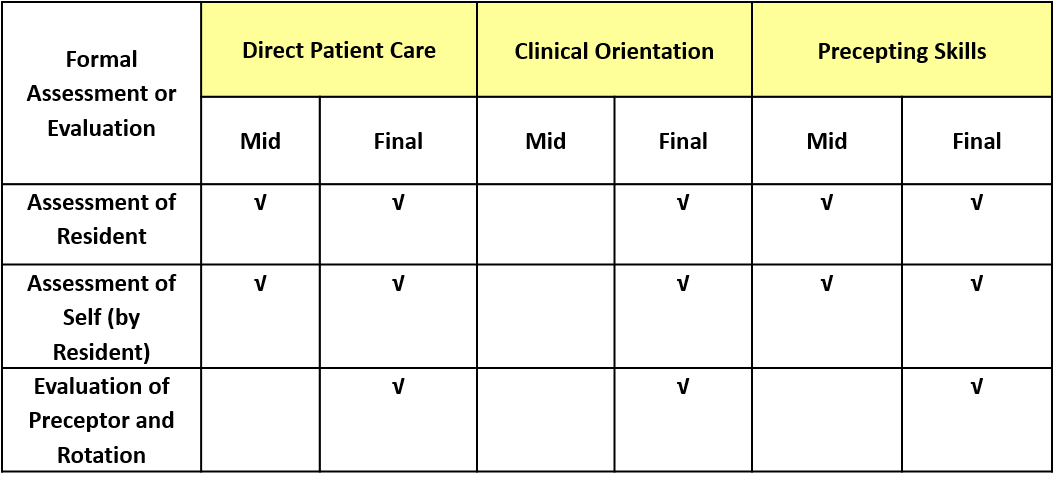Assessment and Evaluation Overview
Overall IH Program Policies
(CPRB 2.2.3.1,3,4,5,6,7,8,9,10,11,12)
- The Program will use both formal and informal methods to assess the resident's performance.
- The Program will use both formal and informal methods to evaluate the preceptor, the rotations, the Program, the Program Coordinator and the Program Director.
- The assessments of the resident will be used to provide the resident with feedback on their performance during their rotations and program activities and will be used to assess the resident’s ability to meet the goals, objectives and required competencies of the Program, the rotations and program activities.
- The Program is committed to maintaining and enhancing the quality of its rotations and experiences. The evaluations of the preceptor, the rotation, the Program, the Program Coordinator and the Program Director will be used to maintain and enhance the quality of our precepting and teaching, as well as the quality of the rotations, program activities and the Program and its leadership, administration and operation. The contents of these evaluations will be reviewed by the Residency Advisory Committee for the purpose of maintaining and enhancing the quality of our rotations, precepting and overall content and operation of the Program.
- All assessments and evaluations will be completed using one45.
- All assessments and evaluations will remain confidential.
Overview of Formative and Summative Assessments and Evaluations



Assessment: Residents will be assessed on their performance throughout the residency program. An assessment is the estimation of the nature, quality, or ability of a person or thing, typically in an ongoing and process-oriented fashion, with a focus on identifying areas for improvement; for example, assessment would typically be used to describe a pharmacy resident's performance during a rotation as a component of a longitudinal process.
Formative Assessments: an assessment of the resident during the rotation to assess the resident’s learning and understanding and progress in meeting the objectives of the rotation. The formative assessment also allows the preceptor to make adjustments to the rotation based on the resident’s learning in order to facilitate the ability of the resident to achieve the goals and objectives of the rotation. The resident will be assessed using a formative assessment at the mid-point of the rotation.
Summative Assessments: an assessment of the resident at the end of the rotation. This assessment is used to assess the resident’s knowledge, skills and abilities in the achievement of the goals and objectives of the rotation.
Evaluation: Preceptors, rotations, the Program, the Program Coordinator and Program Director will be evaluated as part of the Program. An evaluation is the making of a judgement about the amount, number or value of a person or thing, typically in a summative and product-oriented fashion, with a focus on one or more final scores. For example, evaluation would typically be used to determine the quality of a program at a certain point in time.
-Last updated June 10, 2024